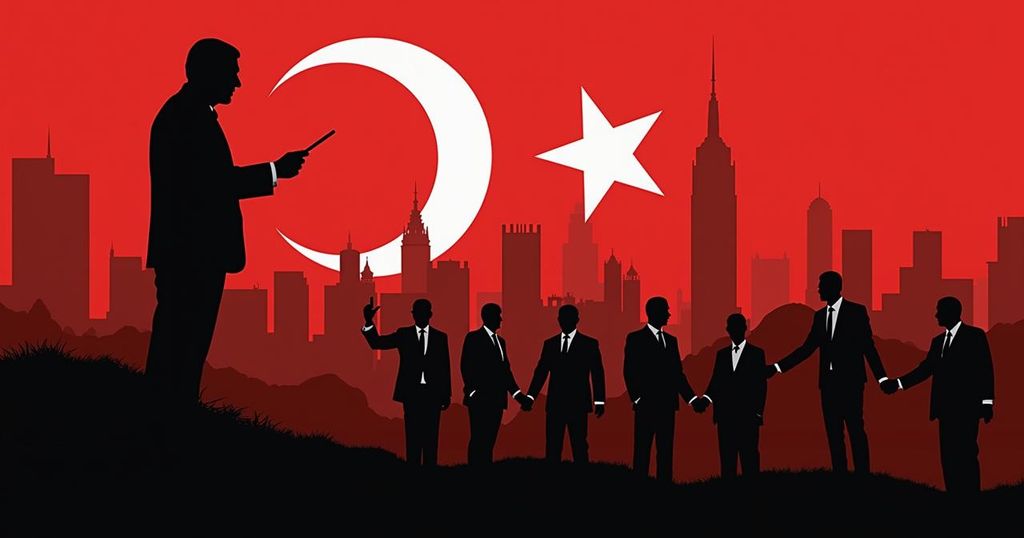Tunisia’s Presidential Election: A Shift Towards Autocracy Amidst Suppressed Dissent
Tunisians voted in a presidential election viewed by critics as lacking integrity, representing a further turn toward autocracy under President Kais Saied, who has suppressed opposition and limited democratic processes. Initially seen as a success story post-Arab Spring, Tunisia’s political landscape has shifted dramatically, with many fearing the end of democratic governance. Saied is seeking re-election amidst significant public disillusionment and concern over electoral fairness, as dissent is met with severe penalties.
On Sunday, Tunisia held a presidential election characterized by skepticism from critics and experts who assert that it will not be conducted in a free or fair manner. This election is seen as a pivotal moment in Tunisia’s ongoing struggle for political freedom, which began during the Arab Spring. Following mass protests in 2011 that led to a semblance of democratic improvement, Tunisia has increasingly shifted towards autocracy under President Kais Saied, a former constitutional law professor who ascended to power in 2019 amidst widespread disillusionment with the political status quo. Since taking office, President Saied has enacted measures perceived as a “self coup,” including suspending parliament and ruling by decree. Critics argue that his administration has undermined democratic institutions, particularly through a referendum that altered the constitution and diminished the legislative branch’s authority, although voter turnout reflected considerable public apathy. Facing minimal opposition, Saied is seeking re-election as he benefits from a landscape where potential rivals have been disqualified or imprisoned. Only a small number of candidates were able to officially enter the race, especially after the independent election commission’s autonomy was curtailed in 2022. This lack of competition has drawn criticism; as Sarah Yerkes from Carnegie’s Middle East Program aptly noted, “It’s not really a contest.” Opposition leaders face severe repercussions for dissent, including arrest and lengthy prison sentences. Rachid Ghannouchi, leader of the major opposition party, was sentenced to three years in prison, while Ayachi Zammel, another opposition candidate, has been detained. Both instances exemplify an environment where dissenting opinions are heavily suppressed. Supporters of these figures continue to advocate for their release, asserting their political relevance despite being sidelined. While some citizens cling to hopes for change through Saied’s leadership, many others report disillusionment, echoing concerns around constitutional integrity and actual democratic process. The entirety of the election reflects both a tragic end to Tunisia’s initial democratic aspirations post-Arab Spring and a troubling shift towards concentrated power.
The political landscape in Tunisia has deteriorated since the Arab Spring protests that initially positioned the country as a beacon of democracy in the region. The 2011 uprisings sparked widespread aspirations for political reform and greater freedoms. However, under President Kais Saied, who was elected in 2019, Tunisia has experienced a regression, characterized by authoritarian governance and severe restrictions on political pluralism. The latest presidential election has ignited fears among voters and analysts that it may effectively extinguish the last remnants of democracy in Tunisia, as Saied consolidates power at the expense of opposition voices and free political discourse. This environment of repression has diminished public trust in the electoral process, with observers noting significant barriers preventing meaningful participation from opposition candidates. Allegations of intimidation and manipulation have marred the legitimacy of the electoral commission, further contributing to public skepticism about the fairness of the upcoming election.
The upcoming presidential election in Tunisia represents a significant turning point in the nation’s political trajectory, marked by a consolidation of power under President Kais Saied and the alarming suppression of dissent. As numerous opposition candidates face disqualification or incarceration, the electoral process is largely perceived as heavily skewed in favor of the incumbent. Observers express concern that this election could finalize Tunisia’s departure from its democratic aspirations that emerged from the Arab Spring, reinforcing authoritarian rule at a time when the country grapples with pressing economic challenges and public discontent. The outlook for democracy in Tunisia appears bleak, as the intersection of legal manipulation and systemic oppression raises critical questions about the future of political freedom in the country.
Original Source: www.washingtonpost.com




Post Comment